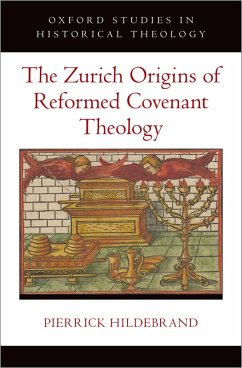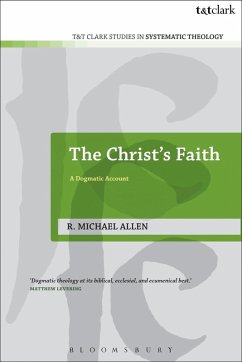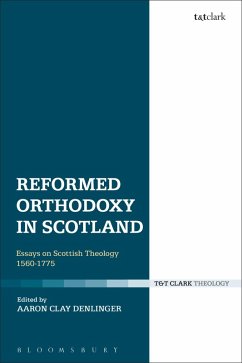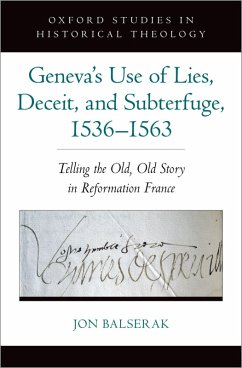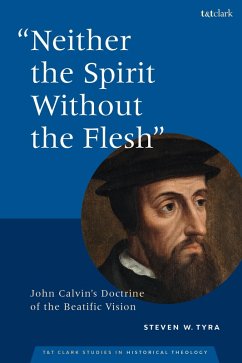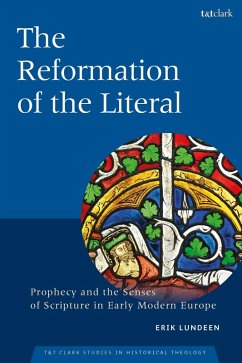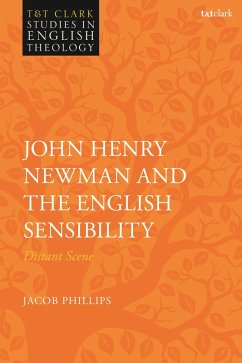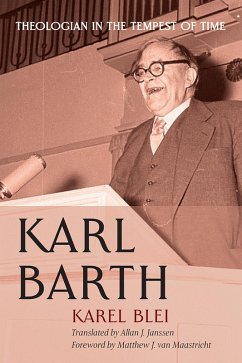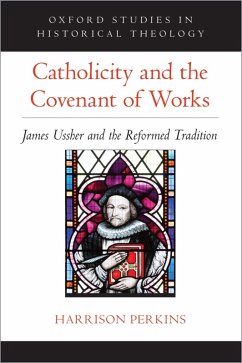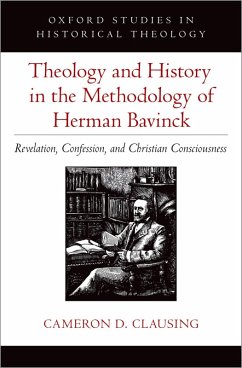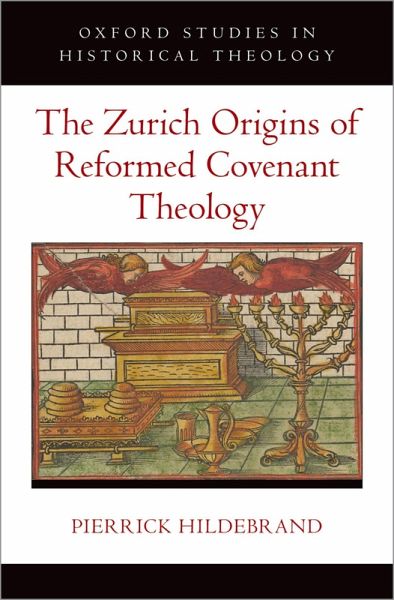
The Zurich Origins of Reformed Covenant Theology (eBook, ePUB)
Versandkostenfrei!
Sofort per Download lieferbar
54,95 €
inkl. MwSt.
Weitere Ausgaben:

PAYBACK Punkte
27 °P sammeln!
This book offers a fresh interpretation of covenantal theology in the Reformation by demonstrating how the writings of the Zurich reformers Huldrych Zwingli (1484-1531) and his successor Heinrich Bullinger (1504-75) decisively shaped a foundation of the Reformed tradition. The book overturns previous research that has both emphasized Zurich's irreconcilability with later developments of Reformed covenant theology and downplayed the contribution of the Zurich theologians in favor of figures such as Philipp Melanchthon (1497-1560) and John Calvin (1509-64). It argues for the dependence of Calvin...
This book offers a fresh interpretation of covenantal theology in the Reformation by demonstrating how the writings of the Zurich reformers Huldrych Zwingli (1484-1531) and his successor Heinrich Bullinger (1504-75) decisively shaped a foundation of the Reformed tradition. The book overturns previous research that has both emphasized Zurich's irreconcilability with later developments of Reformed covenant theology and downplayed the contribution of the Zurich theologians in favor of figures such as Philipp Melanchthon (1497-1560) and John Calvin (1509-64). It argues for the dependence of Calvin and other leading figures on Zurich and for continuity in the later Reformed tradition with its origins in the 1520s. Pierrick Hildebrand demonstrates that the concept of a prelapsarian covenant, generally used as an argument for discontinuity between Zurich and Heidelberg, was clearly present in Zwingli and Bullinger. Further, Bullinger's covenantal terminology, which integrates the concept of the covenant with union with Christ, was adopted by Calvin and later by the Heidelberg theologians. Rejecting the idea that Zurich and Geneva represented two different traditions, Hildebrand details significant continuities and agreement while paying attention to differences. To do this, he draws on printed texts but also makes extensive use of previously unexamined manuscript sources, such as commentaries and sermon notes, to provide a much fuller account of the origins of Reformed covenantal theology. Working across a range of literary genres and with careful attention to historical contexts, this book presents the evolution of a crucial part of Reformation thought in a new light.
Dieser Download kann aus rechtlichen Gründen nur mit Rechnungsadresse in A, B, BG, CY, CZ, D, DK, EW, E, FIN, F, GR, HR, H, IRL, I, LT, L, LR, M, NL, PL, P, R, S, SLO, SK ausgeliefert werden.




